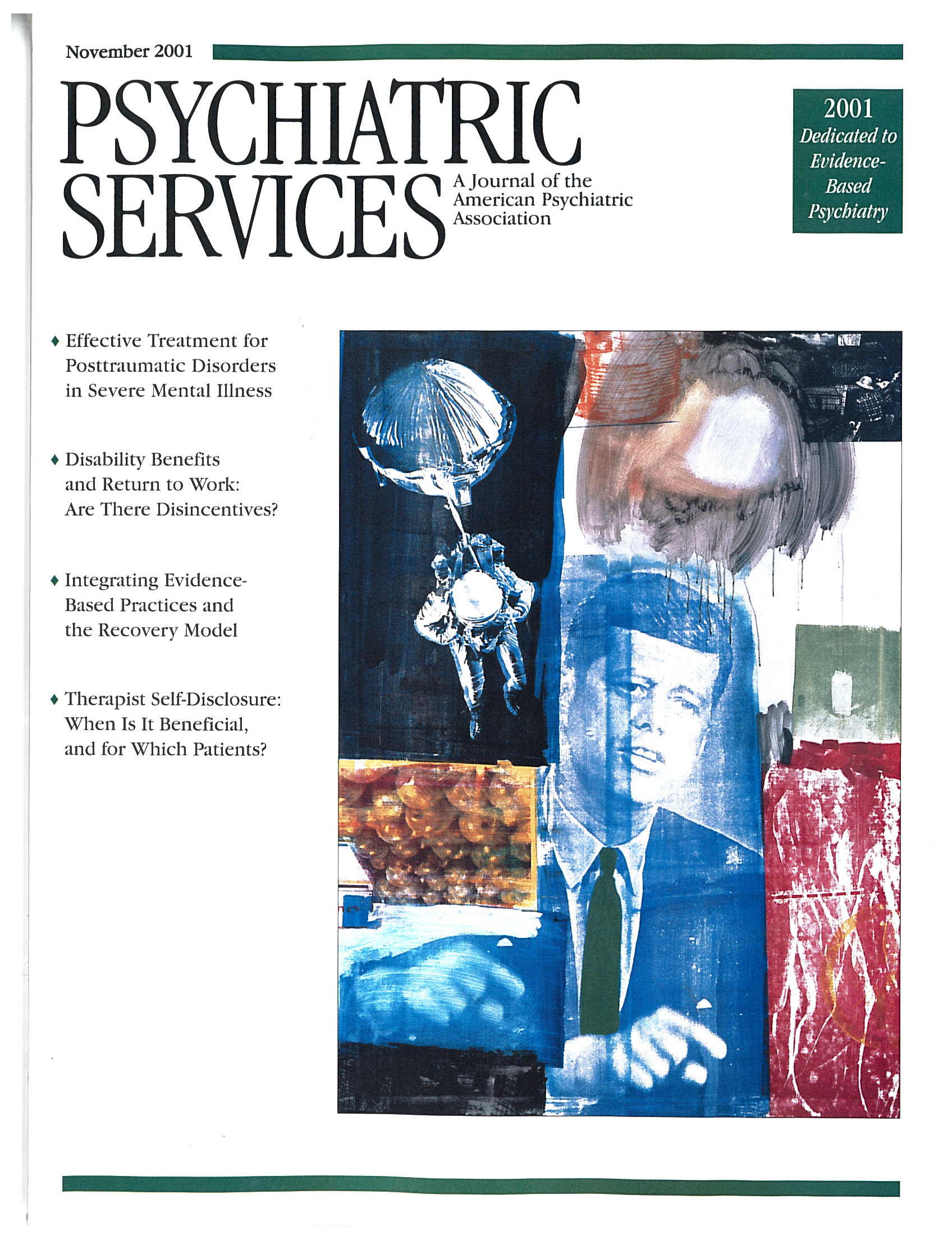Developing Effective Treatments for Posttraumatic Disorders Among People With Severe Mental Illness
Abstract
OBJECTIVE: The purpose of the study was to examine strategies for developing effective interventions for clients who have both serious mental illness and posttraumatic symptoms. METHODS: The authors conducted searches for articles published between 1970 and 2000, using MEDLINE, PsycLIT, and PILOTS. They assessed current practices, interviewed consumers and providers, and examined published and unpublished documents from consumer groups and state mental health authorities. RESULTS AND CONCLUSIONS: Exposure to trauma, particularly violent victimization, is endemic among clients with severe mental illness. Multiple psychiatric and behavioral problems are associated with trauma, but posttraumatic stress disorder (PTSD) is the most common and best-defined consequence of trauma. Mental health consumers and providers have expressed concerns about several trauma-related issues, including possible underdiagnosis of PTSD, misdiagnosis of other psychiatric disorders among trauma survivors, incidents of retraumatization in the mental health treatment system, and inadequate treatment for trauma-related disorders. Despite consensus that trauma and PTSD symptoms should be routinely evaluated, valid assessment techniques are not generally used by mental health care providers. PTSD is often untreated among clients with serious mental illness, or it is treated with untested interventions. It is important that policy makers, service system administrators, and providers recognize the prevalence and impact of trauma in the lives of people with severe mental illness. The development of effective treatments for this population requires a rational, orderly process, beginning with the testing of theoretically grounded interventions in controlled clinical trials.



